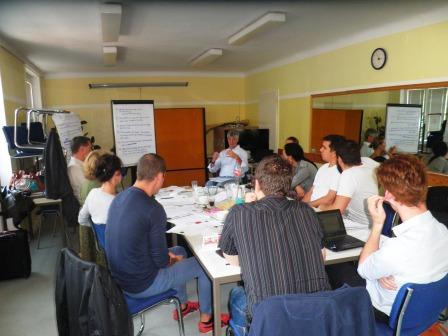At the beginning of September a group of experts from municipal or national institutions from 9 European countries (Czech Republic, Slovakia, Poland, Lithuania, Latvia, Estonia, Slovenia, Hungary, and Romania), active members of immigrant communities from these countries and NGOs met in Berlin to learn how advisory bodies for immigrants are organized in Germany.
Within the framework of the project “Fostering political participation and policy involvement of immigrants in 9 Central and Eastern EU countries”, the group participated at a variety of events organized by the Arbeiter-Wohlfahrt (AWO) in cooperation with the Czech Organization for Aid to Refugees (OPU). The participating representatives could compare the involvement of immigrants in public life through advisory bodies in their respective countries and the other countries involved in the project. The German organization then presented the functioning of the advisory bodies and a say of immigrants into the decision-making processes in Germany.

To limit political participation only to citizens in a time when the phenomenon of migration is so omnipresent and annually about three million people move to – and two million people move out of the EU seems like a mere anachronism. By political participation is primarily meant the active and passive voting right (foremost in municipal elections), the ability to be member of a political party and the involvement of advisory bodies for immigrants. The active involvement of immigrants in public affairs definitely has a positive effect on the integration of foreigners into the main society (identification with democratic principles, good experiences with influencing their surroundings, contact with the mayor society etc.) and the mayor society itself (better understanding of the problems of foreigners, decrease of prejudices and socially excluded localities etc.).
Results and experiences of the study visits will be spread between government officials and authorities in different countries and it will be lobbied to highlight the importance of advisory bodies dealing with local or national problems of immigrants.




